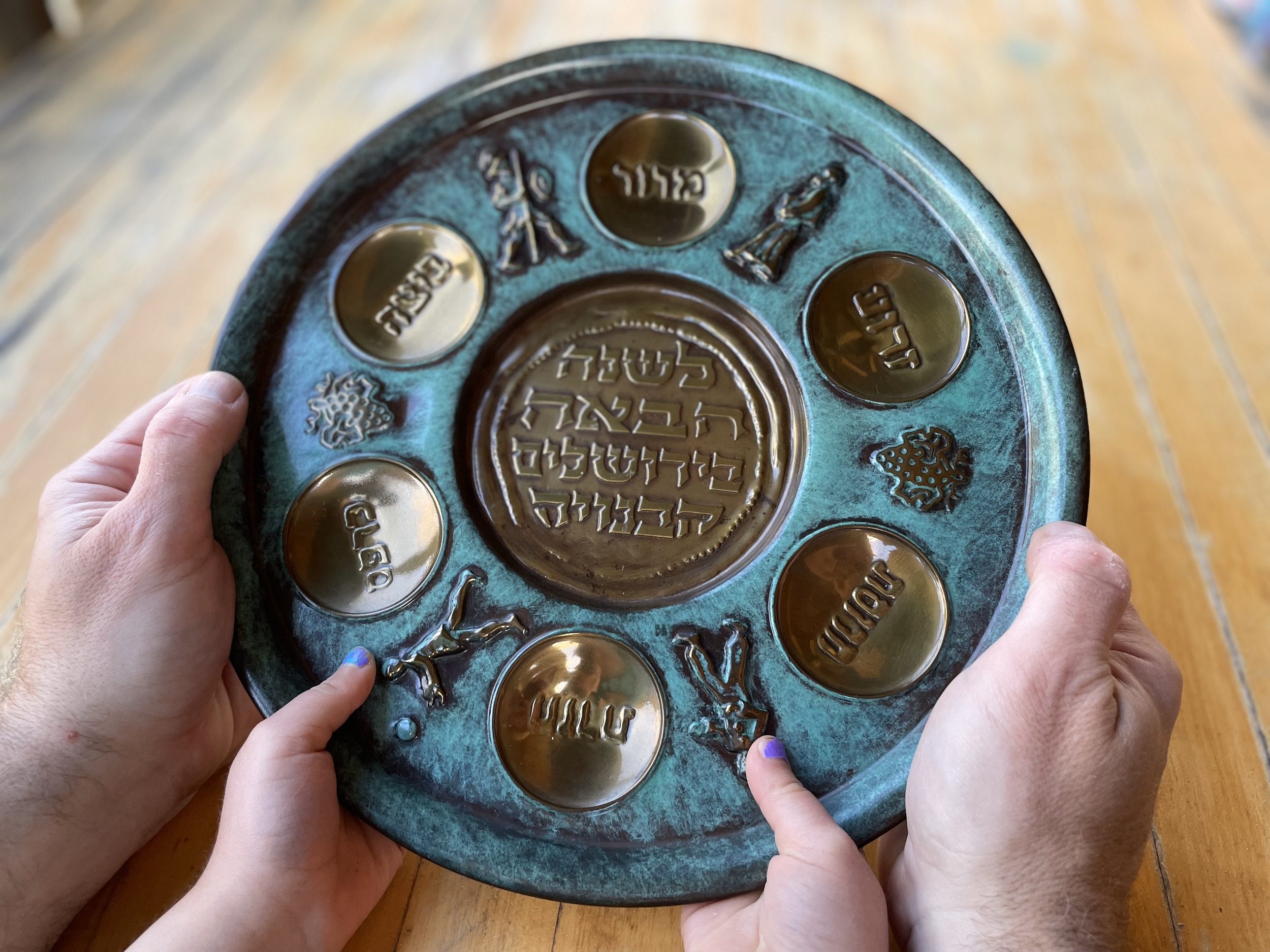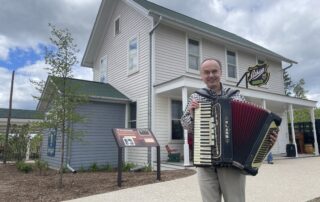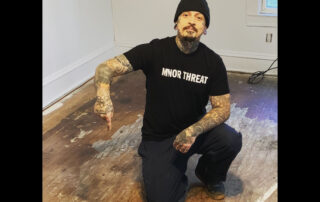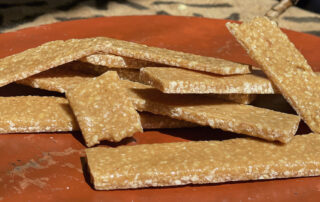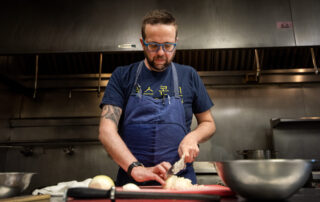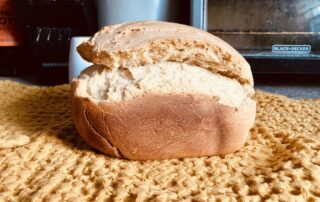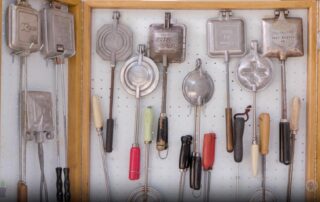Jewish people around the world are in the midst of celebrating Passover. The holiday opens with a Seder meal and commemorates the Israelites’ exodus from slavery in Egypt. The spring renewal festival has writer Mark Griffin of Madison reflecting on his own life and his evolving relationship with his beliefs.
==
“The Spring Renewal Jew”
I’m not the least observant Jew in America. I attended synagogue as a kid, had my bar mitzvah, and even went to Jewish summer camp.
But, in the following decades, my life in organized religion took a backseat to less structured spiritual pursuits. Somewhere along the way, I did conclude that our puny little human brains just aren’t wired to understand how the universe came to be. And if we were all once part of some big ball of light that exploded and became our galaxies and salamanders, battling entropy and disorder through good deeds makes everything a little more tolerable in this place.
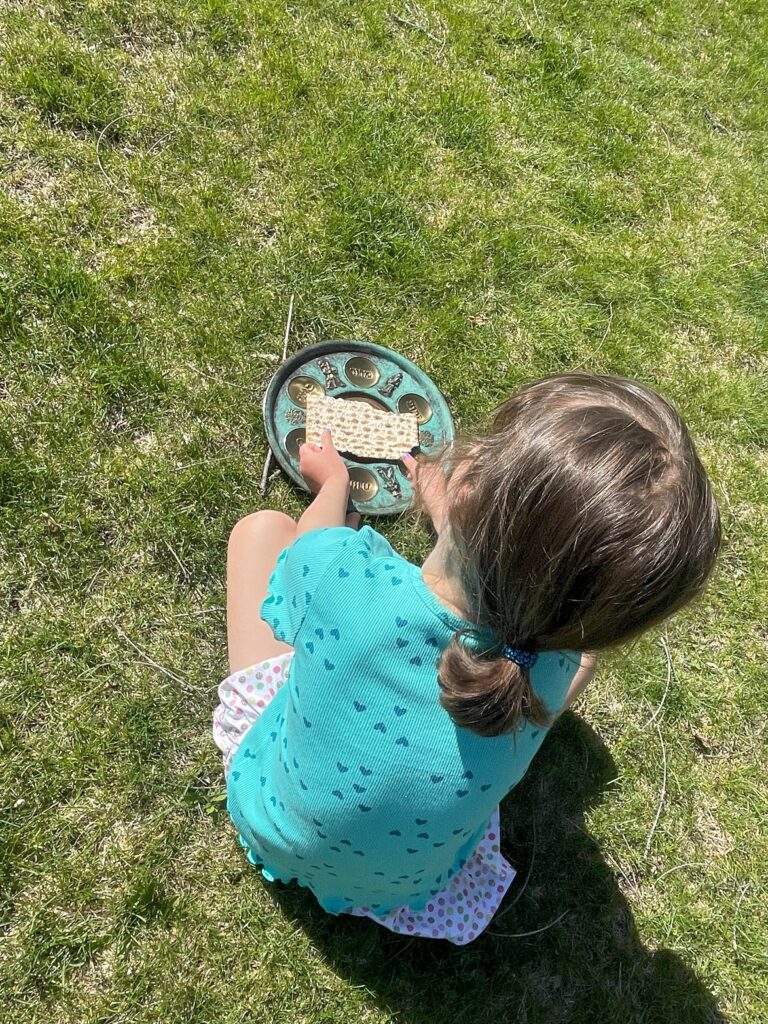
Mark E. Griffin’s daughter places matzo on the family’s seder plate as they prepare for Passover. (Photo by Mark E. Griffin)
But now there’s a person with half of my chromosomes running around who Has Suddenly Begun Asking Questions, and I fear something’s missing from our Jewish identity. “What does it mean to be Jewish,” my kindergartner has posed, more than once. Now, during Passover, I can’t help but think that maybe the answer lies somewhere in the Haggadah.
If you’re not familiar with the Jewish spring renewal holiday of Passover, it’s similar to other more popular ones with eggs and themes of rebirth, but with less bunnies and chocolate and more unleavened bread and indigestion. The story of Passover is one of starting over and escaping the shackles of what we once were. Blooming, if you will, like the flowers of spring.
If you’ve ever attended a Seder feast and held the Maxwell House branded blue Haggadah book in your hands, you know about the story of The Four Children. It goes something like this: there is a family with four youths – one wise, one wicked, one simple, and one too young to inquire – sitting at their own Seder. They all, in their own way, are wondering about who they are. I tend to look at it as one child – mine – aging into questions about her own identity.
You give the youngest at the table the basics: We were all once energy and light that exploded into this orb we’re inhabiting, and we were all slaves once (to someone or something), and as enlightened peoples we are learning to live with that trauma, and are trying to do better.
Easy enough for a toddler to comprehend, right? But now my girl has aged into the next category. The simple child, who asks “What is this?”
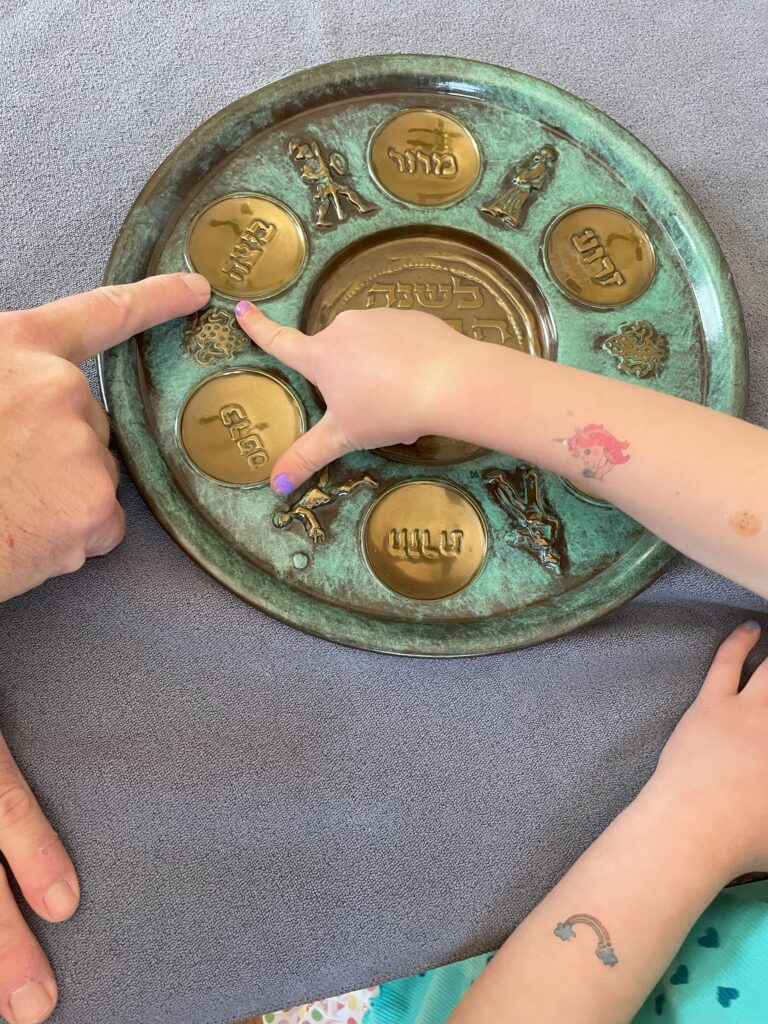
Mark E. Griffin points out to his daughter the beitza, or roasted egg, symbolizing spring, rebirth, and the cycle of beginnings and endings in life on the family’s seder plate. (Photo by Melissa Motew)
I’ve taught my daughter some prayers, and in the summer she starts Jewish day camp herself. I can’t help but think that I don’t yet have a sufficient explanation for why a celebration for being freed from slavery thousands of years ago is so essential to who we are as a family and a people? Then, I’m reminded of values. My father-in-law, a slightly lapsed Jew himself, once told me the most we could teach his granddaughter were our values.
So, I tell her to express herself, stand up for herself and others when wronged, and to listen to her teachers. I show her love with unconditional fervor – she is an expression of God, after all. And I tell her, in bits and pieces, the story of how we all came to be in this land. And I tell her about the woman she is partly named after, who had to run from the bad guys to survive.
I tell her the story of Passover. Once there was a community. They struggled. They performed acts of kindness towards one another. They worked, they cooked, they fought, they ran from danger. They survived. They expressed gratitude, and sorrow. They praised the links between them, the light. They shared their stories with the next generation, honoring those who came before them. They took care of people in need. They tried to make things better.
I’m still not sure how to do this organized religion thing, but I know I’ve got some things right. That has to count for something.
